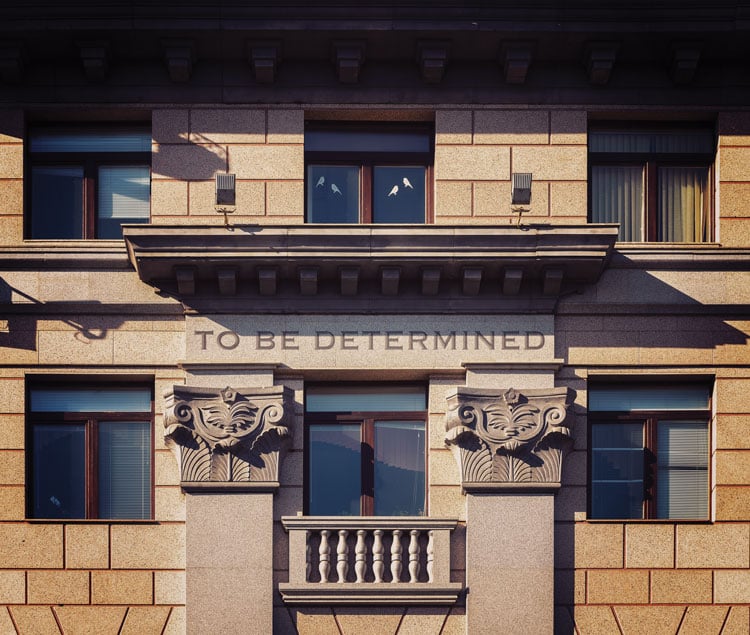Law school and university namesakes stir up controversial pasts

Photo Illustration by Sara Wadford; Shutterstock.
The University of California at Berkeley School of Law holds a special place in Miriam Kim’s heart. A 2002 graduate, she speaks proudly of fellow alumni with progressive values and calls herself a “Boaltie.” The nickname comes from Boalt Hall, a campus building named in recognition of John Henry Boalt, a Nevada lawyer who made his fortune in the mining industry and came to California in the late 1880s.
Few had given much thought to the name behind the building—until a recently publicized research paper revealed Boalt’s beliefs were unlike those of many who’ve attended classes in the building named after him.
In 1877, Boalt wrote a paper advocating the end of Chinese immigration to the United States, arguing that the Chinese would never assimilate to American culture and could not live in harmony with whites. His paper sparked the creation of the Chinese Exclusion Act of 1882, which was the first U.S. law that prevented a specific ethnic group from entering the country.
That bit of Boalt history has remained mostly unknown to students and faculty, but news of it spread quickly after Charles P. Reichmann, a lecturer at Berkeley Law, came across Boalt’s writings and published a paper called “Anti-Chinese Racism at Berkeley: The Case for Renaming Boalt Hall.” He also wrote an op-ed about it in the San Francisco Chronicle in 2017. The revelation about Boalt’s past was not well-received.
“I was extremely upset to hear that [Boalt] had advocated for the Chinese Exclusion Act,” says Kim, who co-chairs the Berkeley Law Asian Pacific American Alumni Association. “Boalt Hall was such a diverse and inclusive place for a woman of color like me, so it was disappointing to hear that John Boalt was racist and a major proponent of the act.”
Boalt was never officially part of the school’s name, but it’s been referred to as Boalt for more than 60 years. The name, however, is attached to a wing of the main building.
Berkeley Law dean Erwin Chemerinsky, who is also a columnist for the ABA Journal, formed a committee to discuss the naming controversy, and the school planned a town hall-style meeting to address it.
FOUNDERS’ FAULTS
Just across the bay, the University of California’s Hastings College of the Law in San Francisco also faces criticism for the man associated with its name: Serranus Clinton Hastings. He was a successful politician, lawyer and landowner who gave $100,000 to start the law school in 1878. But historians have found that he helped organize a group of men who massacred hundreds of Native Americans living near land that Hastings claimed for himself.
Such controversies over names and racist histories at colleges and universities are not isolated incidents. Harvard Law School revamped its official seal to remove the family crest of early donor and slaveholder Isaac Royall Jr. after calls from students and an in-depth administrative review. Other institutions, including Yale and Princeton universities, have also addressed the issue of founders and supporters with ties to racism. The name of former San Francisco Mayor James D. Phelan was removed last year from a University of San Francisco dormitory at the urging of students. Phelan, mayor from 1897 to 1902, was an opponent of Japanese immigration and later campaigned for the U.S. Senate with the slogan “Keep California white.”
Naming schools and buildings after donors is big business with charitable organizations, says Neil Carbone, a New York City trusts and estates lawyer who represents high net worth individuals.
“Charitable organizations, including schools, solicit large donations and offer naming rights as an incentive to give,” he says. “Some schools even provide a schedule of how much money a donor needs to contribute for corresponding naming rights.”
For Boalt Hall, there was no mention of the Boalt name being attached to the building in perpetuity, says Charles Cannon, Berkeley Law’s senior assistant dean and chief administrative officer. However, he is fairly certain that attaching the name to two endowed faculty chairs was mandated by the Boalt estate.
David Faigman, dean at UC Hastings, says he understands that the donation agreement with the school’s namesake included such an opportunity. Both schools say discussion around the issue is important, regardless of whether the names stay or go.
Kim, a trade secrets litigator and partner with Munger, Tolles & Olson, says she associates the Boalt name with Elizabeth Josselyn Boalt, John Henry Boalt’s widow, who established the school in 1906.
A classically trained pianist, Boalt created a trust instructing that two pieces of San Francisco property she owned be sold and the proceeds used to build the Boalt Memorial Hall of Law. Little is known about her views on the Chinese Exclusion Act, but some historians plan to examine a bundle of her letters the school possesses.
Kim says that if Boalt indeed did not share her husband’s views, she’s inclined “to reclaim the Boalt name and change it to Elizabeth J. Boalt Hall. ... At minimum I think we need to do an education campaign to raise awareness. If we just get rid of the name and nobody knows why, that’s a pointless exercise in my view.”
This article was published in the February 2018 issue of the ABA Journal with the title "What’s in a Name? For some law schools and universities, namesakes stir up controversial pasts."



